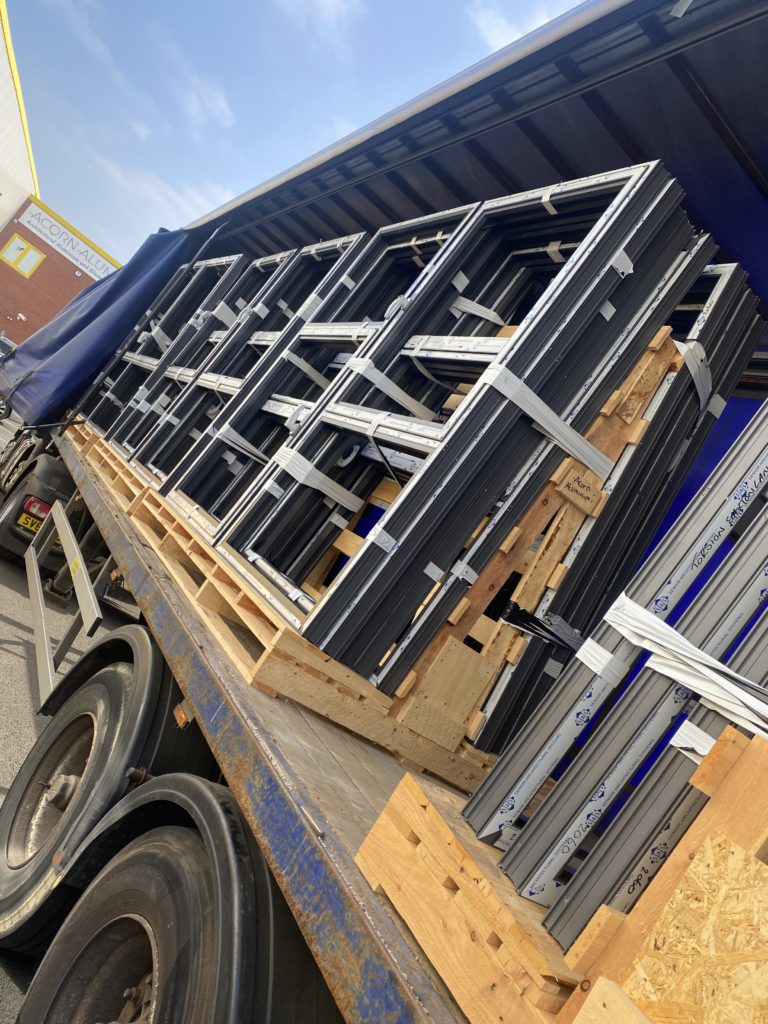The modular building sector lost some of its shine last month [March] as administrators were called into off-site construction specialist Caledonian. With another high-profile failure, and in the face of significant headwinds, is it time that the construction sector changed the way that it works?
Paul Stevens, Commercial Director, Acorn Aluminium, discusses.
The failure of another construction company, Caledonian Modular in March, highlights the continuing stresses under which the whole construction supply chain is operating.
How the sector functions – or, more accurately, doesn’t function – how contracts are awarded, and how payments are made has been subject of numerous reviews and changes.
The most recent, the Construction Playbook, focused on getting a better deal for taxpayers, and represented an attempt by Government drive change in project procurement and delivery from ‘the top’ by redefining how it awards – and expects – contracts to be run right through the supply chain.
This includes early partnering throughout and involvement of sub-contractors earlier in the process to deliver projects to a higher standard, more efficiently, and to guarantee the profitability of those companies involved.
Government may not always necessarily get it right, but this is the key point: we (the whole supply chain) need to be profitable, and contracts need to be awarded and managed fairly.
As a sub-contractor we have strong partnerships with main contractors. Working in partnership architects, specifiers and other sub-contractors, makes project delivery flow better, more efficiently and, as highlighted in the Construction Playbook, delivers better outcomes for the client.
There are, however, still challenges and things that we need to address as a sector.
Lead times in construction are long and that puts pressure on cashflow. As a sub-contractor we need to put time and cash, in up-front. We understand that, but payment regimes can be long. That makes cashflow key and ultimately something which is at the root of every failure, big and small, that we have seen in the last decade.
As part of a much bigger and diversified group, we have a level of resilience not always afforded to other sub-contractors, but even with the capital sitting behind us, there is a level of pressure that we all face.
That can be problematic when you are committing resource to projects that won’t see the first payment for perhaps six or seven months. And in the current climate there’s a risk that the fundamental vulnerabilities in the supply chain become exposed.
We and our customers are trying to manage a period of high demand against a backdrop of rising operational and materials costs. The hikes in wholesale gas and energy prices are now being felt and there is pressure on the whole supply chain.
That makes sensible pricing, and prompt and fair payment even more important. If main contractors hold back payments, sub-contractors will fail. It’s that simple.
We believe that there is a moral prerogative for change: partnerships which are built on genuine collaboration, not unfair payment regimes.
And it’s in the interest of everyone to get on board, because if we genuinely work in partnership, projects flow better, are delivered to a higher standard, and we all benefit.
We’ve put this into practice on a recent project to head off increases in materials. Working in partnership with our suppliers and main contractors we took the decision to buy product for windows and curtain walling up front on a £65million scheme in Leeds. You can read more here.

A lot of main contractors have pledged to put in place fairer payment regimes. Some have acted on those pledges; others have embraced them less fully.
The benefits of genuine partnership between the supply chain are immense. We see it every day in the schemes that we’re supporting but not all contracts operate that way and if things don’t change, construction companies at all tiers of the industry will continue to fail.

